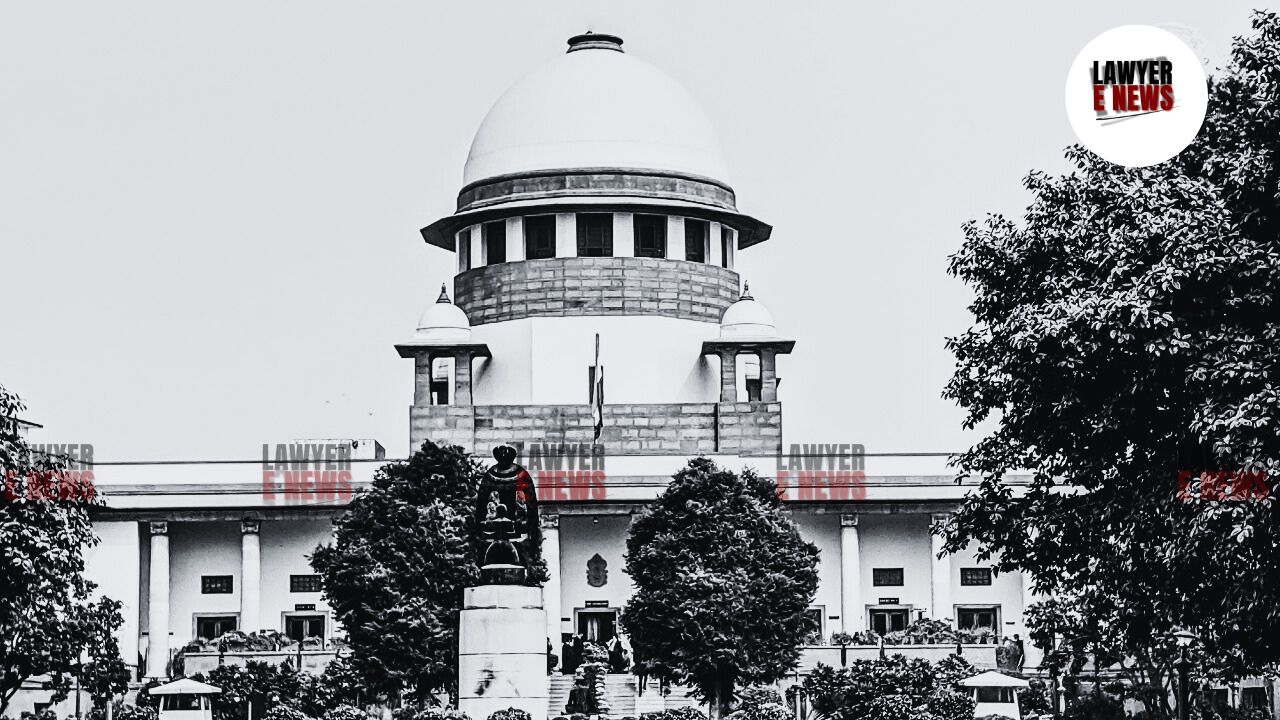-
by Admin
16 February 2026 10:43 AM



Once Compensation is Delayed, Interest at 12% Becomes a Legal Mandate – Supreme Court ruled that interest on delayed compensation under the Employee’s Compensation Act, 1923, must be paid at 12% per annum from the date of the accident, leaving no room for discretion. The Court rejected the insurance company’s argument that it could not be held responsible for the employer’s failure to make timely payments.
Justice K. Vinod Chandran, writing for the Bench, made it clear that the law leaves no space for ambiguity. “The law is clear—when an employer defaults in paying compensation within one month from the date it falls due, interest at 12% per annum must be applied. The insurer cannot escape this liability, nor can it seek recovery from the insured.”
The case arose from a compensation claim filed by the legal heirs of a deceased worker who had been employed as a cleaner on a truck owned by his father. The worker had suffered a fatal accident in the course of employment. His mother and siblings, as claimants, sought compensation under the Employee’s Compensation Act.
The insurance company resisted its liability on multiple grounds. It contended that there had been no proper intimation of the accident, that interest and penalties for delayed payment should not be imposed on the insurer, and that it had the right to recover any interest it was forced to pay from the insured employer.
The Commissioner for Employee’s Compensation ruled in favor of the claimants, awarding compensation with 6% interest per annum and a 40% penalty on the employer for defaulting on timely payment. The High Court upheld the 6% interest, denying the claimants’ request to increase the rate to 12% from the date of the accident.
The claimants approached the Supreme Court, arguing that the statutory mandate of 12% interest from the date of the accident could not be diluted by judicial discretion.
Supreme Court Holds That 12% Interest is Mandatory and Must Apply From Date of Accident
Reversing the High Court’s ruling, the Supreme Court held that the Employee’s Compensation Act does not allow for any discretion to reduce the statutory interest rate below 12%. The judgment declared that any delay in compensation automatically triggers the statutory interest rate, and the insurer, once impleaded, cannot escape this liability.
Justice Vinod Chandran, delivering the judgment, stated unequivocally: “Section 4A(3) explicitly states that when an employer defaults in paying compensation within one month, interest at 12% per annum shall apply. The Commissioner has no discretion to lower this rate.”
The insurance company attempted to argue that since it was not informed of the accident, it should not be held liable for interest payments. The Court dismissed this argument, noting that the insurance company had been properly impleaded in the claim petition, and that the order directing it to pay compensation, interest, and penalty was never challenged in appeal.
"The insurer was impleaded in the claim petition and was directed to pay compensation, interest, and penalty. It did not appeal against this order. Therefore, it cannot now escape liability or seek recovery of the interest amount from the insured."
The Court emphasized that interest must run from the date of the accident, not from any later stage, as this principle had already been settled in earlier rulings such as Pradeep Narain Singh Deo v. Srinivas Sabate (1976) and North East Karnataka Road Transport Corporation v. Sujatha (2019).
Referring to these precedents, the judgment stated: "Interest at 12% per annum must be applied from the date of the accident, not from a later stage. This has been settled law."
Supreme Court Dismisses Insurer’s Attempt to Avoid Liability
The insurance company sought to argue that it should be allowed to recover the interest amount from the insured employer, since it was the employer’s failure to pay on time that led to the accrual of interest. The Supreme Court flatly rejected this contention, ruling that once the insurer is held liable under the Employee’s Compensation Act, it must pay the interest, with no right to recover it from the insured.
Justice Chandran, reinforcing the Court’s position, made it clear: "There is no question of the insurer wriggling out of its liability to pay interest, nor can it claim reimbursement from the insured employer."
The Court also criticized the High Court for allowing a lower rate of interest than what was mandated by law. The judgment pointed out that while the Commissioner has discretion to increase the interest rate above 12%, it has no authority to reduce it below this threshold.
"The discretion conferred under Section 4A(3) only allows for a higher rate of interest, ensuring it does not exceed scheduled bank lending rates. But the 12% rate is non-negotiable."
The Supreme Court’s ruling is a strong affirmation of statutory compliance in labor welfare laws, ensuring that workers and their families receive fair compensation without delays or reduction in legally mandated interest. By making it clear that insurance companies cannot evade liability for statutory interest, the judgment ensures that compensation awarded under the Employee’s Compensation Act is swift, fair, and protected from legal maneuvering.
Justice Vinod Chandran, delivering the final ruling, left no scope for future disputes: "The claim of the appellants is substantiated by the statutory provision. We modify the award insofar as the rate of interest, directing 12% per annum from the date of the accident."
The ruling serves as a clear precedent that delayed compensation under the Employee’s Compensation Act will always attract a mandatory 12% interest from the date of the accident, and insurers cannot challenge this statutory obligation.
Date of Decision: 17/02/2025
